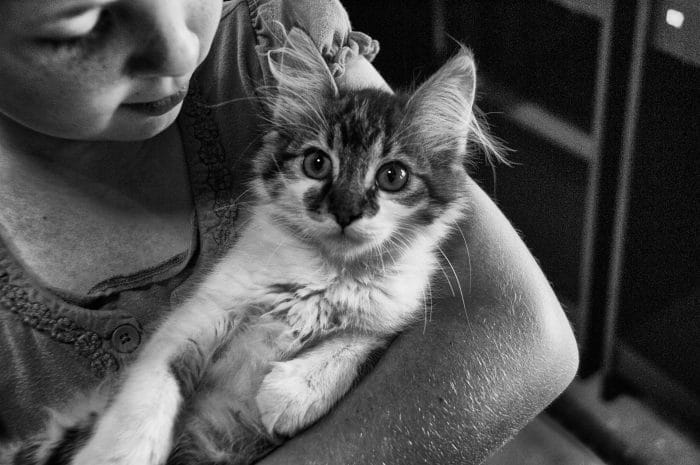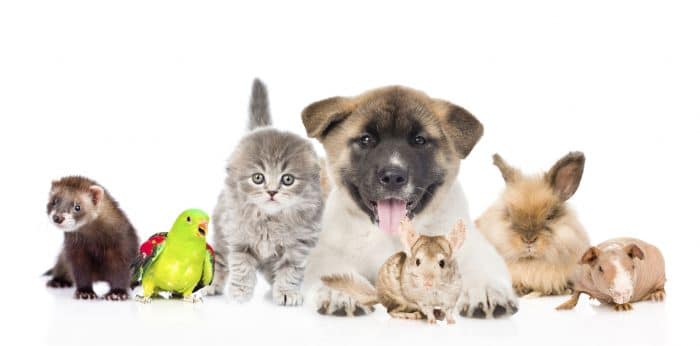
When a person you love dies, it’s natural to grieve, express your grief and expect friends and family to provide understanding and comfort. Unfortunately, when a beloved pet dies, many people are less understanding of the deep affect it has on your life. Some may think or say, “it’s just a pet” and think that your pain may pass in a matter of days or with the “replacement” of another animal. Nothing could be further from the truth.
Your pet was a member of your family
Whether a dog lover, a cat lover or just an animal lover, pets have become as much a member of the family as their human counterparts. You undoubtedly love your pet and probably considered he or she a member of your family too. Many people, especially those for whom the pet is a constant companion, confide in their animals, talk to them, give and receive deep affection, and come to count on their presence as a critical part of the day. So when your beloved pet dies, it’s not unusual to feel overwhelmed by the intensity of your sorrow.
Animals provide companionship, acceptance, emotional support, and unconditional love during their life with you.
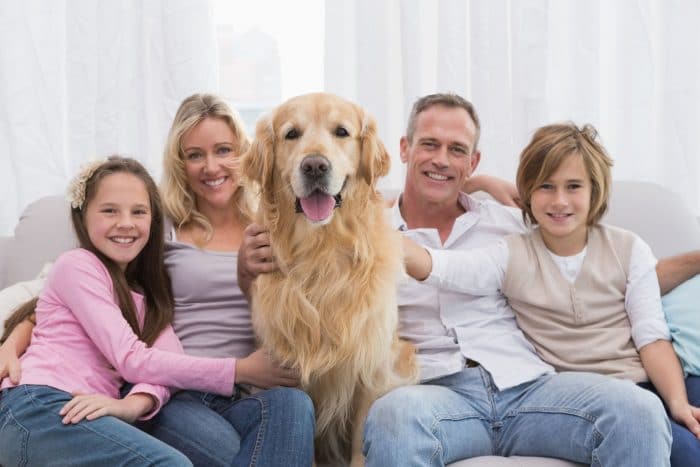
If you understand and accept this bond between humans and animals, you need to take the first step toward coping with pet loss: knowing that it’s okay to grieve when your pet dies. Don’t tell yourself or let anyone tell you otherwise – you have a right to grieve.
What to expect while grieving
Grief is personal and individual, and every person experiences its nuances differently. Your personality, support system, natural coping mechanisms and many other factors can determine how loss will affect you. There are no rules, timetables, or linear progressions. Some people feel better after a few weeks or months, and for others it may take years. And in the midst of recovery there may be setbacks — this nonlinear process can’t be controlled. It’s critical that you treat yourself with patience and compassion and allow the process to unfold. You have the right to grieve, and no one — including yourself — can tell you when it’s time to end that process.
Grief is unique and can often depends on one’s relationship to their pet. Let’s explore the different relationships one might have.
To a child, a pet is often the first living thing they learn to care for. Whether walking a dog, feeding a cat or cleaning a cage, children learn that they are responsible for the well-being of their pet and that their pet depends on them.
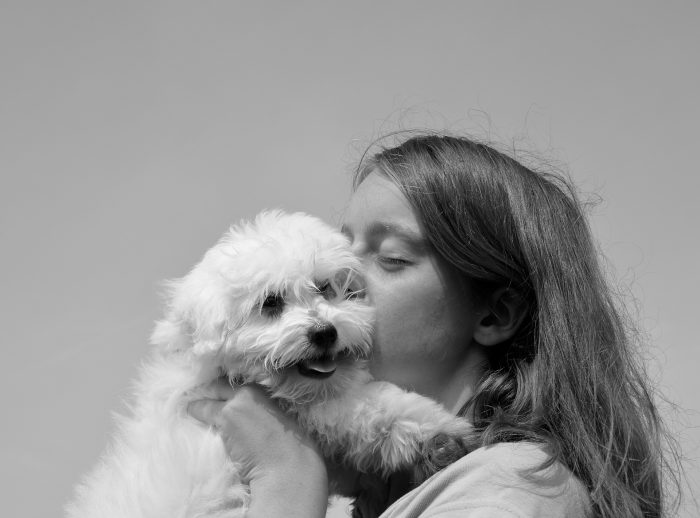
One might suggest, the more involved a child is in the care for their animal, the stronger the emotional bond becomes. So when a beloved pet dies, a child’s grief might become more complicated as they bring question to their own failure and guilt, i.e., was a fence left open, did they leave enough food? It’s important that a child understand that the death of a pet is not their fault. Accidents, illness and old age will happen no matter how well a pet was loved and cared for. One might use this as a reminder that love and kindness are the best we can do while our pets are in our care and to be happy your pet had your child’s love.
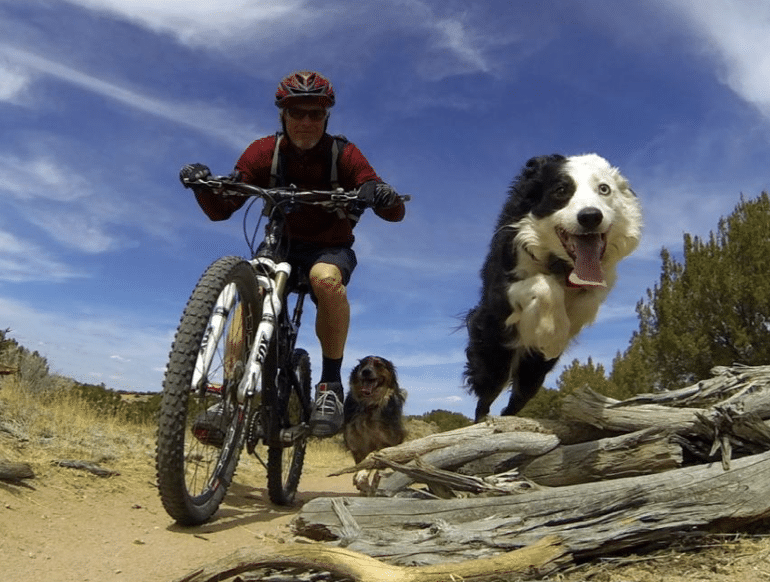
In today’s world many adults choose not to have human families or at least put off having them until later years. New studies show that these owners take their pets to the vet more often then generations before, give their pets vitamins, buy pet toys and traets and designer items and hold pet parties. In the event that the pet is a dog, owners pay for pet services and take their dogs on errands and to pet-friendly restaurants. So for the adult who chooses a pet before a human family their pet’s death leaves an emptiness and often deep grief. Their pet was their companion, their friend, their child and their family.
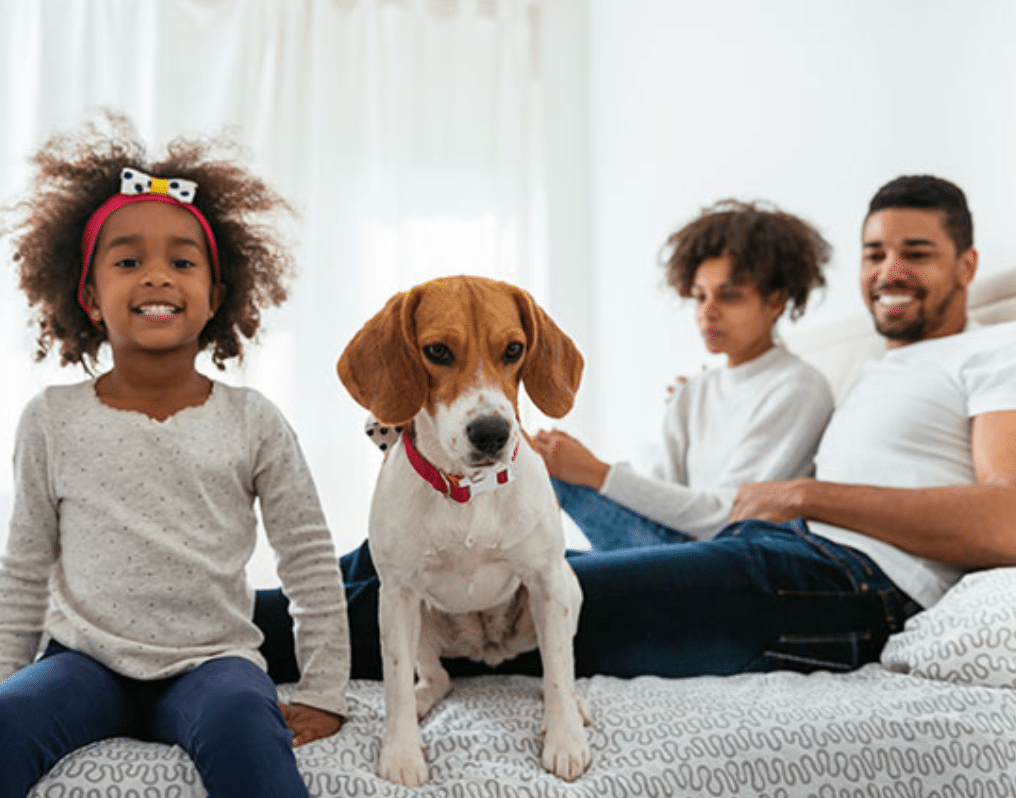
For the family, a pet’s death is felt by all and each family member grieves in their unique and special way. For a child who cuddled their pet a bedtime, this time moving forward might be become the most difficult part of day. For the husband who came home to his pet’s wagging tail, coming home might now be sad. For the woman who had her coffee every morning with her furry friend, this daily ritual might become lonely. It’s important not to judge and equally important not to be judged. Be kind to yourself and understand that those around you have different connections to your beloved family pet.
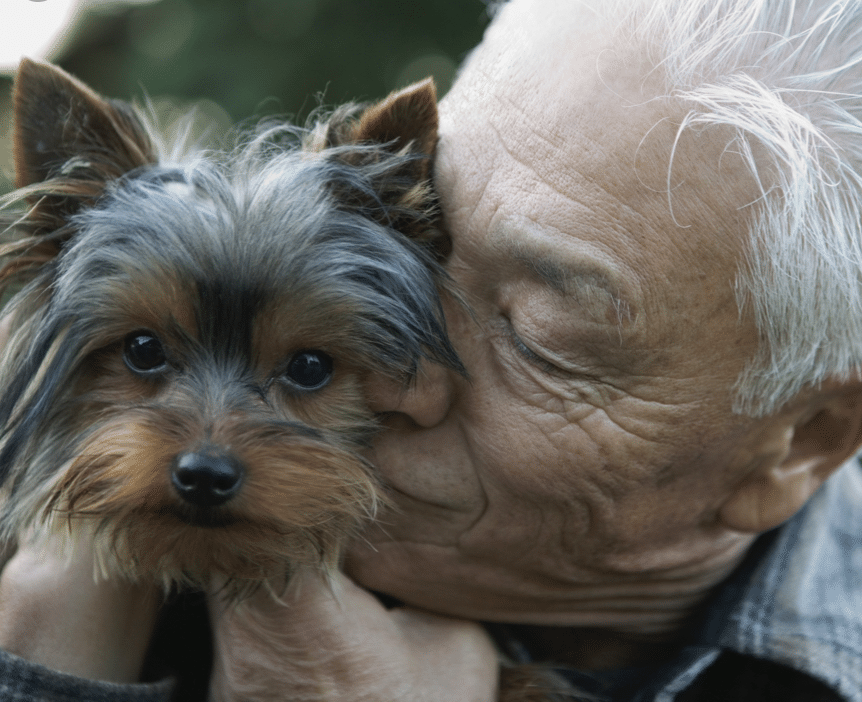
Coping with the loss of a pet can be particularly hard for seniors. Those who live alone may feel a loss of purpose and an immense emptiness – if you live alone, your pet may have alleviated any sense of loneliness or isolation. Your pet may have motivated you to get out for a walk or to establish a meaningful daily routine by taking care of their needs. And most of all, your pet was a source of unconditional love and constant companionship.
Because your companion meant so much to you, your pet’s death may also trigger painful memories of other losses and remind you of your own mortality. For some, the decision to get another pet is complicated by the possibility that the pet may
outlive the caregiver, or hinge on the person’s physical and financial ability to care for a new pet. These issues can lead to feelings of increased isolation and a focus on what can’t happen instead of the good the future may hold.
How to cope with your grief
For all the reasons noted above, it’s critical that you take immediate steps to cope with your loss and regain a sense of purpose. Make every effort to interact with friends and family and assuage the loneliness. Consider calling a pet loss support hotline or even volunteering at a local humane society. Contact with needy animals may help you as you grieve for your own loss, knowing that you’re providing them with much-needed love and physical contact. There are also organizations that need foster families for pets. You may be able to provide loving companionship to that animal as a way of honoring the memory of your own companion.
There are also virtual opportunities to honor and remember your beloved pet. For children, the death of a pet is usually their first experience with grief. Make sure you have memorabilia, and perhaps create a virtual memorial. These are great tools for children and family to feel connected while remembering all the joy your pet brought to your family. It’s a way to begin a healthy grief recovery as you celebrate the joy and love you shared. As you begin the journey through grief and your hearts heal, perhaps you’ll be able to embrace another pet eager to love a family ready to open its heart again.
Other things to keep in mind~Remember
Give yourself permission to grieve: Your loss is as deserving of sorrow and grief as any other. You may share a bond with your animal as you have had with humans. Allow yourself to grieve, and don’t judge yourself – your grief is appropriate and should be recognized.
Give yourself time to grieve: There is no timeline on grief. Only you know when you can move through a day with less sadness, and no one can tell you that it’s “time to move on.”
Accept and express your feelings: Don’t be embarrassed by your feelings nor hide them. Suppressing feelings may only lead to greater grief later on or even physical ailments often associated with depression.
